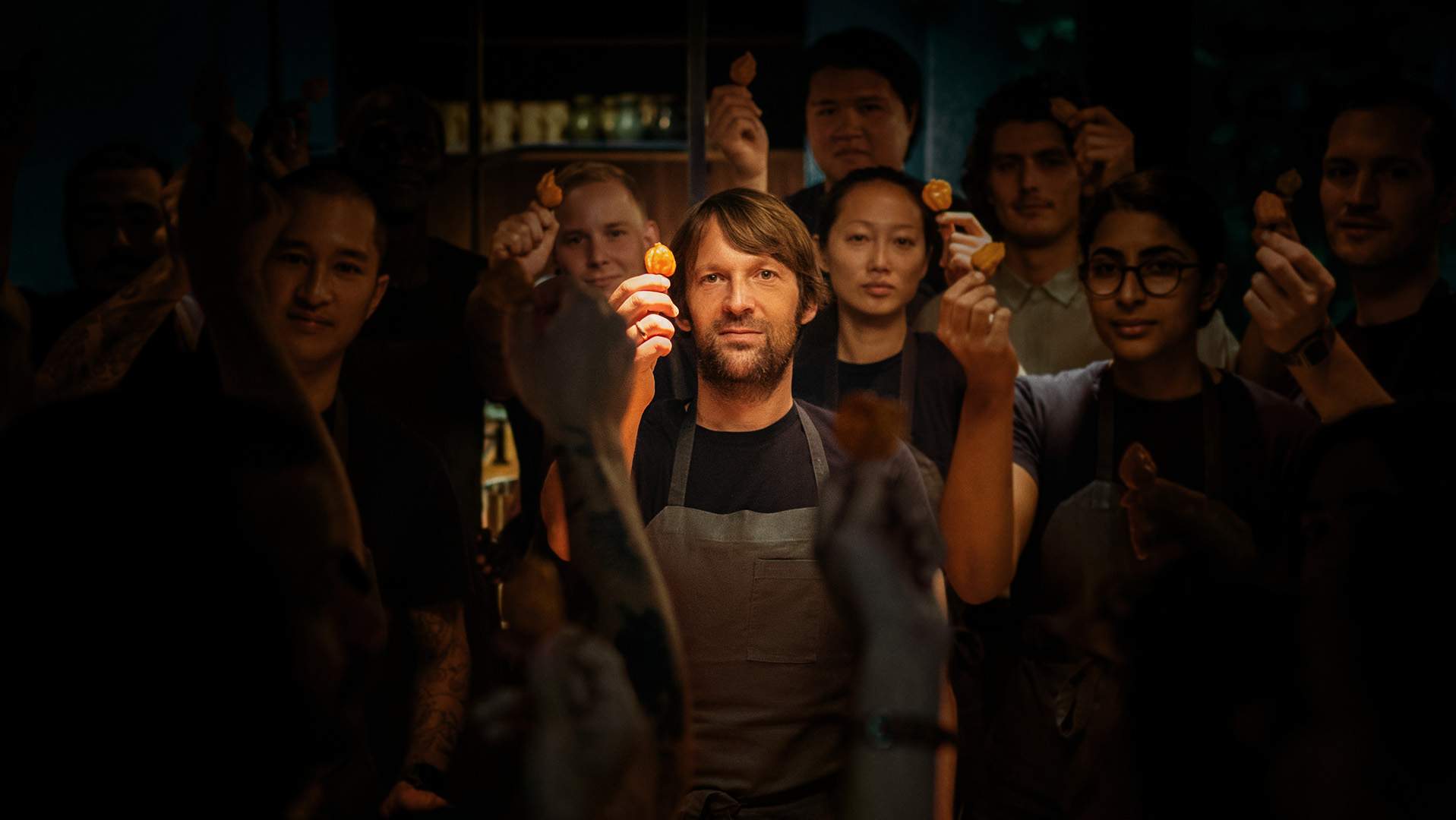Giving Food the 'Planet Earth' Treatment: René Redzepi and Australian Noma Alum Ben Liebmann Chat 'Omnivore'
Fresh from popping up in 'The Bear', the acclaimed chef behind one of the world's best restaurants hosts a docuseries about key ingredients that've shaped humanity.
What would the global culinary scene of the last 20 years be without René Redzepi? Whether or not you've had the good fortune to dine at Noma since 2003 — including at its pop-ups in Sydney, Kyoto, Tokyo and Tulum — the mind behind the three-Michelin-starred Copenhagen eatery has helped shape the restaurant industry in the 21st century. For more than half of that time, the Danish kitchen wiz has also been cooking up a television docuseries that asks similar questions, but about the ingredients that we consume. What would the world be without chilli? What is the impact of our appetite for tuna? How has salt helped shape our history? Bananas, pigs, rice, coffee, corn: in Apple TV+'s Omnivore, they're all also in the spotlight.
It was over a decade ago, when Noma was firmly established as a sensation — it's been voted the planet's best by The World's 50 Best Restaurants five times, from 2010–12, and also in 2014 and 2021 — that Redzepi came up with the idea for the series that debuts on streaming on Friday, July 19, 2024. As happens with renowned chefs, TV offers were coming his way, but never for the type of project that'd see him happily spend time away from his celebrated fine-diner. Taking inspiration from natural history documentaries, especially David Attenborough-fronted greats such as Planet Earth, gave rise to a show that treats the nutritional staples that fuel humanity with the same care and reverence.
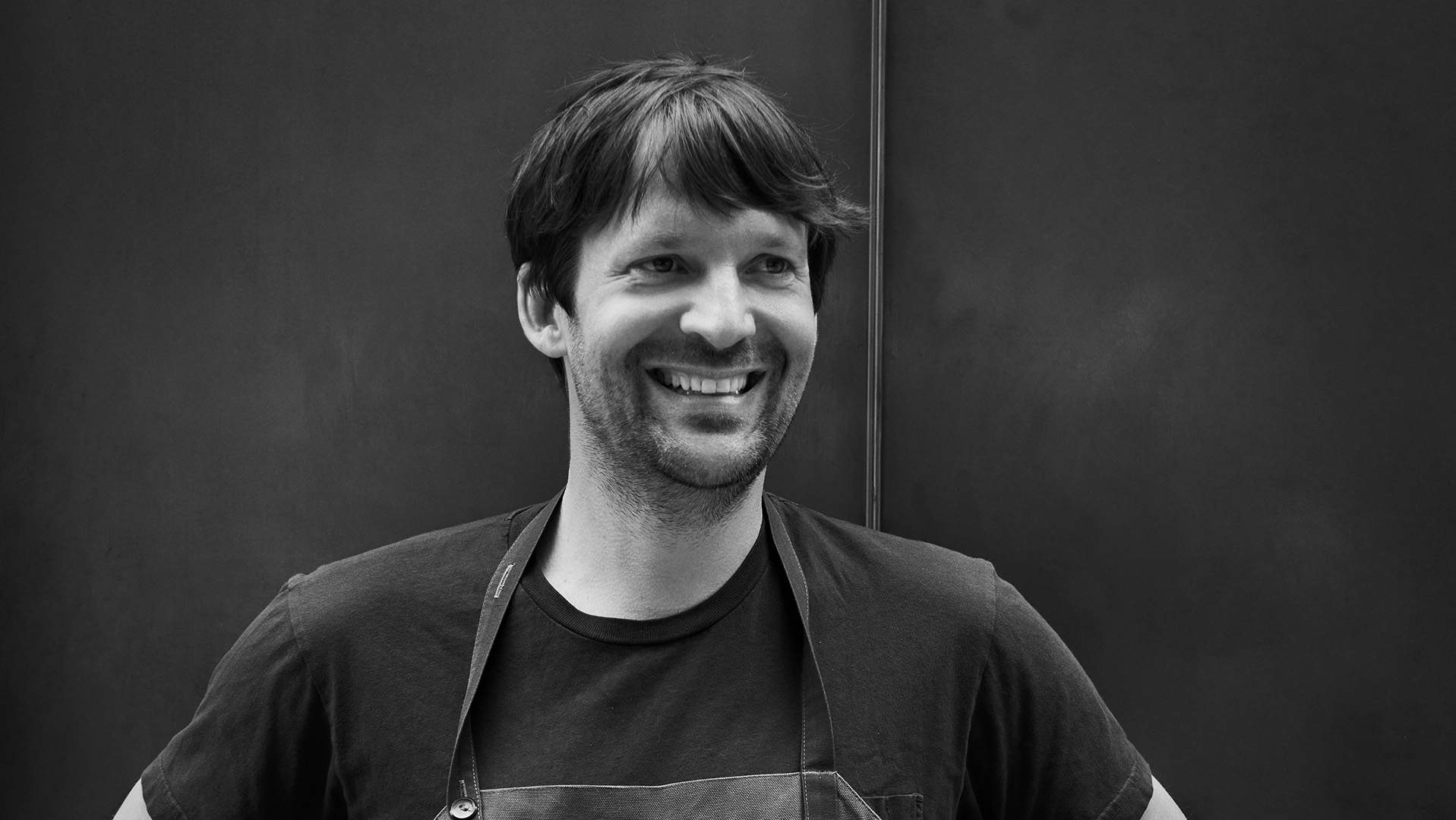
Ditte Isager
With Redzepi leading the way within the series and Australian ex-Noma Chief Operating Officer Ben Liebmann an executive producer — the latter alongside Anthony Bourdain: Explore Parts Unknown alum Matt Goulding — Omnivore's first season whittles down its key ingredients to the eight mentioned above. "It was a giant process," Redzepi advises Concrete Playground in an interview with both him and Liebmann. More than 120 choices were under consideration, but that's one of the program's delicate balancing acts. Another is in the buffet of stories and details that it dishes up about each type of food, telling viewers the origins and history of every ingredient, stepping through the impact and importance at both a mass and a personal level, unpacking the relationship between the item in question and the climate, and recognising that none of it exists in a vacuum without having ripples around the planet. Just like off-screen, of course, Redzepi knows how to create a winning recipe.
As it travels the globe, pairing meticulous footage of each ingredient's life cycle with portraits of folks whose existence revolves around them, this isn't a talking heads-led show. It observes. It appreciates. Redzepi is also heard more than he's seen. It's his second television project in as many months, however, as everyone who watches The Bear — so, everyone — will know. Given how long that Omnivore has been simmering, that timing is purely coincidental. Also, even being in The Bear briefly took some convincing. "It's a nice to have, not a need to have, for me," he shares.
"I only did it because they really asked me to. I know them very well. We've known them long before The Bear was a thing, and they were in Copenhagen and they shot all these scenes, and they said 'hey, can we please have you there?'," Redzepi tells us. "And I wasn't going to be in the show. I said 'I don't know how to act. Don't ask me this.' But then they they thought it would be a great idea, and I did it. And then many people mentioned it, even though I just look at the guy for a second. I guess it's a good thing for Omnivore that that happened, and perhaps they were right in saying 'no, no, you should be briefly in there."
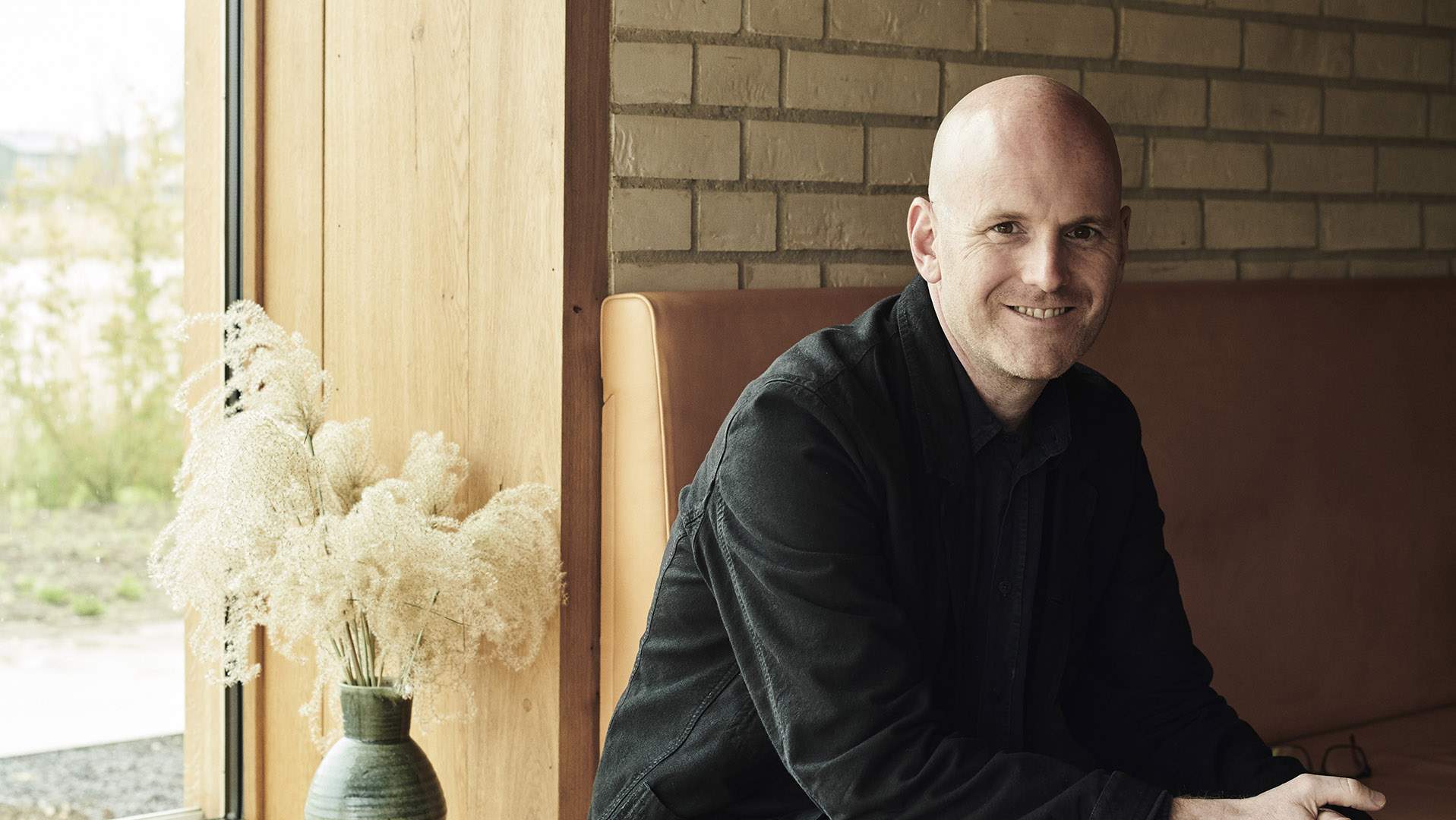
Ditte Isager
2024 isn't just a big year for Redzepi in the TV realm. Before 2025 hits, he'll bid farewell to Noma 2.0 — the restaurant's guise since 2017, after it reemerged following its closure in 2016 — and say hello Noma 3.0, a test kitchen and food laboratory in its latest reinvention. Working on Omnivore has helped cement the new direction for Noma, Redzepi explains in our chat. He also credits Liebmann, whose stint at Noma from 2015–22 sits alongside working on television franchises such as MasterChef, Grand Designs and Idol, with to ensuring that it came to fruition.
Ahead of Omnivore dropping its first season in full, ready for a binge that'll make you hungry for chilli, tuna, salt, bananas, bacon, rice, coffee and corn — perhaps not all at once — we spoke with Redzepi and Liebmann about what gets them excited about new projects beyond Noma, the original idea for the series, taking inspiration from Planet Earth, coming up with the right recipe for the show, picking which foods to focus on and Noma's future.
Always wanted to know Redzepi's can't-live-without ingredient, too? We discussed that as well.

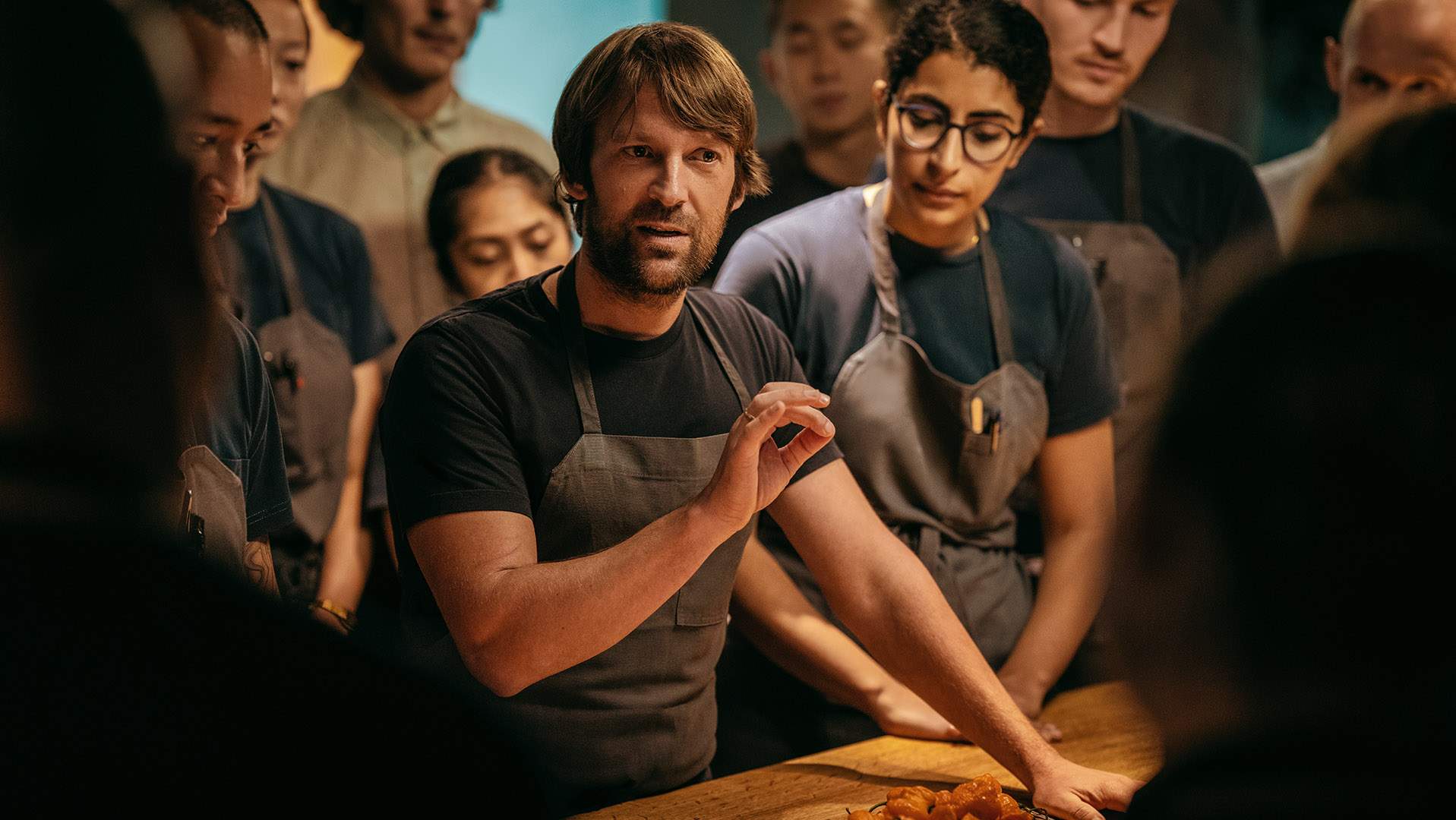
On What Gets Redzepi and Liebmann Excited About New Projects Beyond Noma
René: "I think when you get to be part of something groundbreaking, which I think Omnivore is. Being a part of a groundbreaking project with a network that believes in you, working with some of the best people on a project on a subject that I genuinely believe in, that also teaches me so much about a world that I've been in for the past 30 years — that is inspiring.
And that really gets me excited when the scope is so amazing, like with Omnivore. That really does inspire me to do something like this."
Ben: "I think I've heard René talk about over the years, just that simple idea of stepping outside of one's comfort zone. An opportunity, in this instance, in terms of using media and storytelling to perhaps reach a broader audience, a broader community, than we would otherwise be able to in person — about sharing knowledge, sharing hope, sharing inspiration.
And with a series like this, hopefully creating a conversation and potentially hopefully creating a movement around it. I think that's still that power of media and, in this instance, what makes the project so exciting."

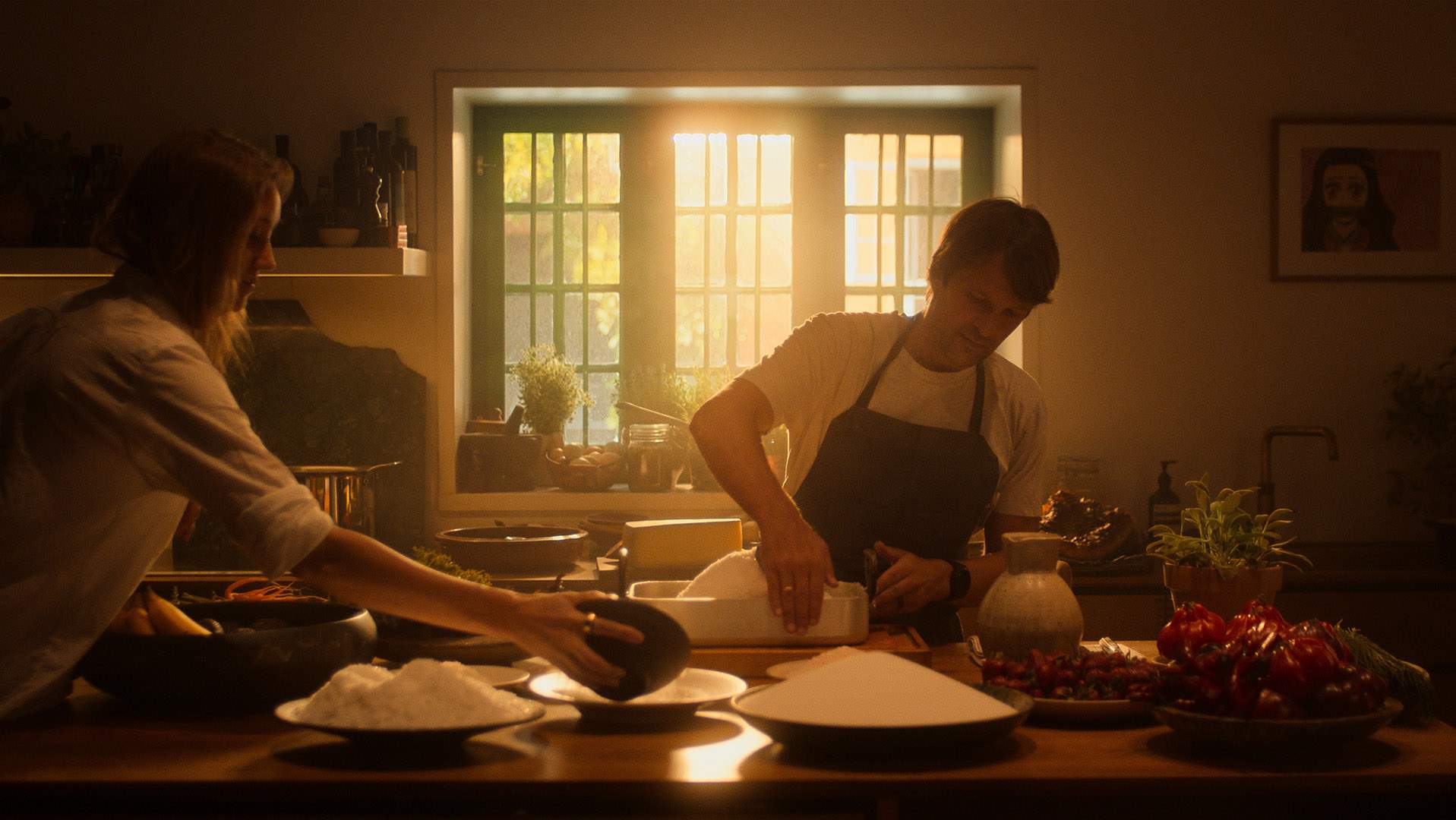
On What Inspired Omnivore a Decade Ago — and the Original Vision
René: "I can't remember if it's like 11–12 years ago or whatever, but it's a while back, and it was at a time when Noma was getting to be known around the world. We had rocket fuel on, and when that happens, you very quickly get offered TV. And I was.
I was supposed to be judges in competition shows or travel. I think there was a show called Fire and Ice, and I had to travel around Scandinavia with a celebrity and teach them how to cook and stuff, and show them where to eat. And I guess it was never enticing enough for me to step out of my work. I was also very happy doing that. But it did make me think 'iIf I was ever to do this, what would I do?'.
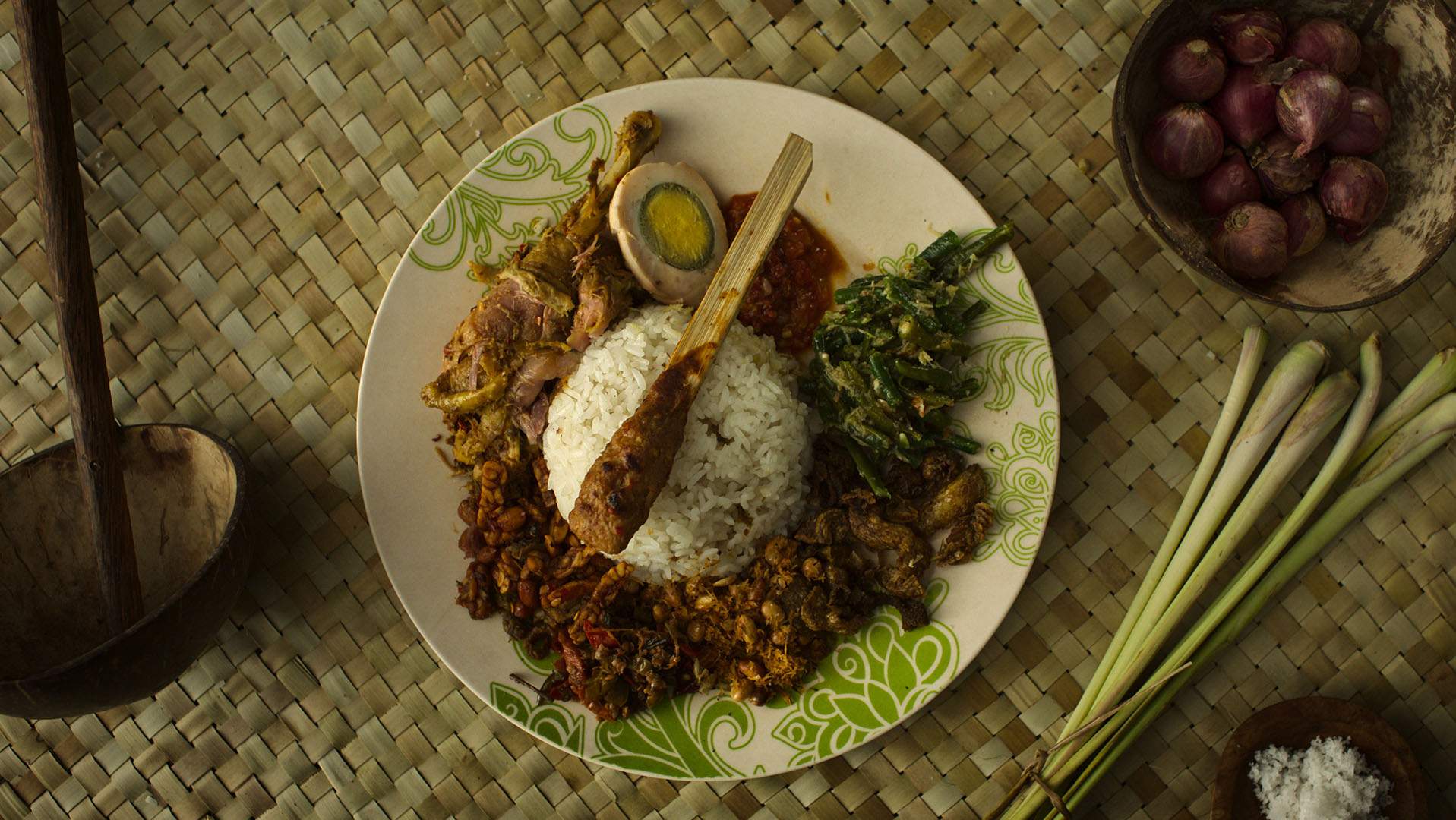
And that's when Omnivore started as a seed: a show that would have the same respect, dedication, care and sophistication towards what we eat as you would see in the great nature documentaries like Planet Earth. If we can show a beetle with so much attention and care, why can't we do that with rice?
And thus inspiring people to be more inspired about what they eat and how they eat, and make them more curious about this wonderful world of food — make them hopefully realise that food is the most amazing thing on earth, besides basic nutrition. It's who we are. It's what made us.
It was always the genesis of the idea. And when Ben came aboard, that's when we finally could put the pieces together. Because if I would have run it, it would never have happened because I would have tried to run it like you built a menu. It's like 'okay, we have this idea, in seven months it should be on camera, right? It should be on TV?'. That's how I would have thought about it."
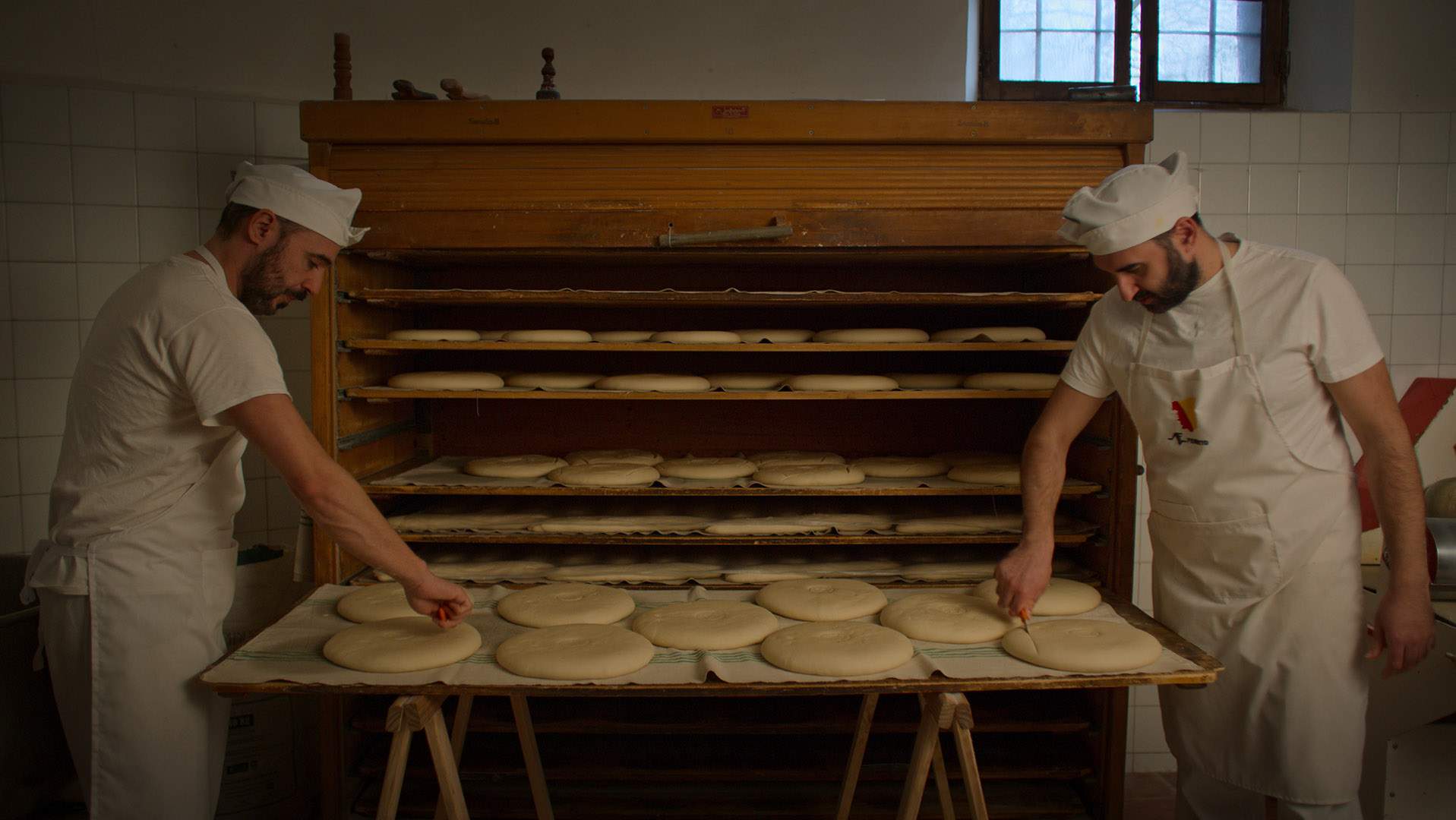
Ben: "I think from my side, when René originally shared the concept for it, it for me was just so intriguing. It was such a simple but yet powerful idea. And I think what intrigued me was that it had not been done before, which was in itself a very Noma thing of trying to do things that hadn't been done before.
Certainly standing on the shoulders of giants in terms of programs that had inspired us in the years before, but trying to elevate, let's call it, food media.
Although in some ways this isn't food media. It's this extraordinary kind of combination of food and natural history, but I think it was that amazing challenge and opportunity to try to create something. And then to build a team, an amazing team, from René and Matt, our partners at Fifth Season and obviously in Apple, somebody who believed in this idea and wanted to help it, help us realise that, was where it all began."

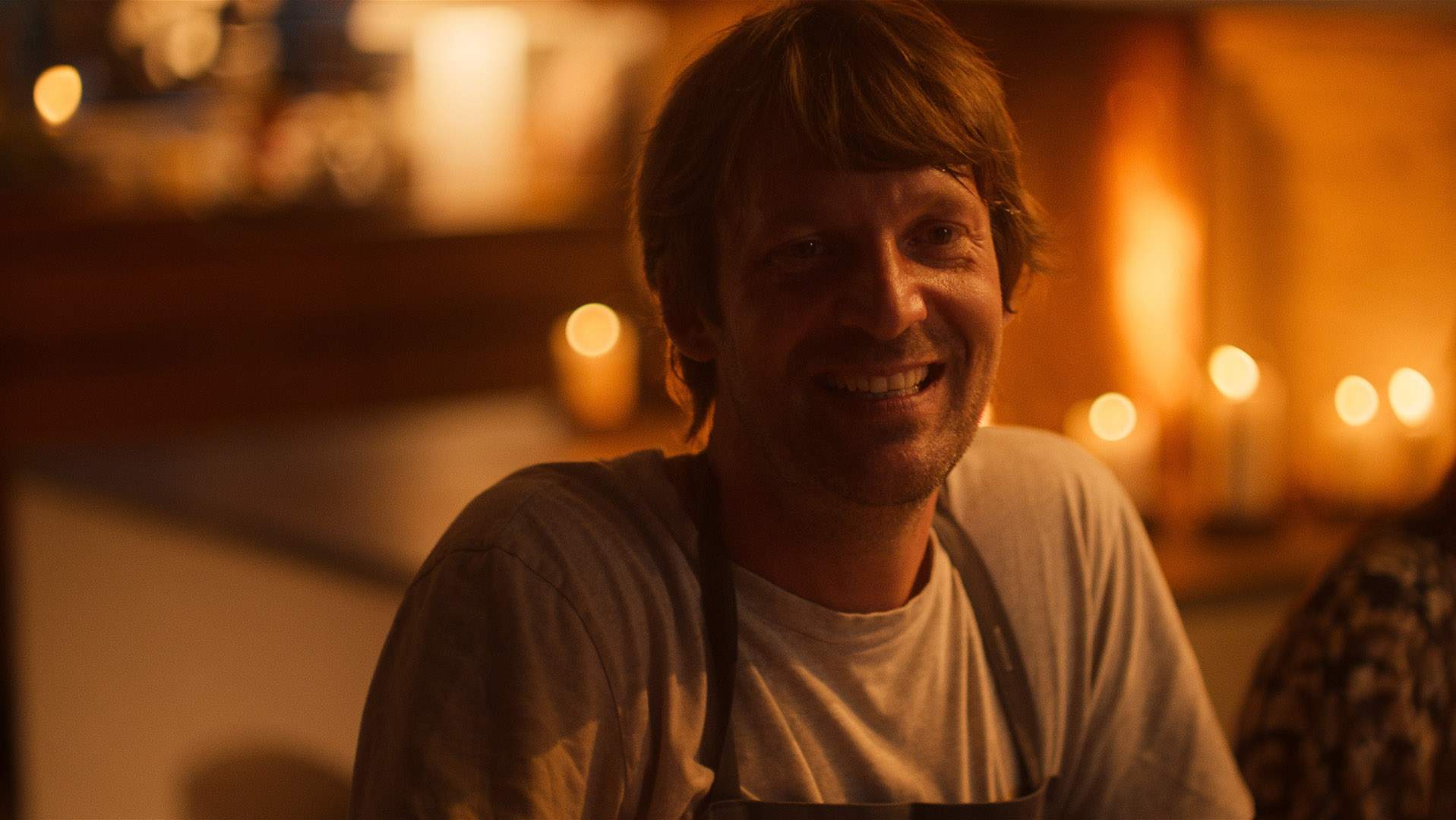
On the Excitement, Challenges and Daunting Feeling That Comes with Taking Inspiration From David Attenborough, But with Food
René: "By no means are we comparing ourselves to his productions at all. We're just inspired by him and his productions.
And yes, it is super daunting. I mean, it's the first time for me. I've never done anything like this. When we do menus at Noma, I've reached a point now where when we set it up, the finals tasting, the entire team is there, the test kitchen team is there, and I think to myself 'we nailed it. I know guests will like this'. I know where on the menu they'll be surprised and be like 'oh, my god, I can't believe this'. You get a sense of that and a feel for that, and it's been a while since I had this feeling that 'okay, I have no clue if people are going to like this'.
We are putting it out into the world — there might be 50 people that watch it, you being one of them, and we have no clue if people are going to like it and accept it and be inspired. They might hate it.
No, they won't."
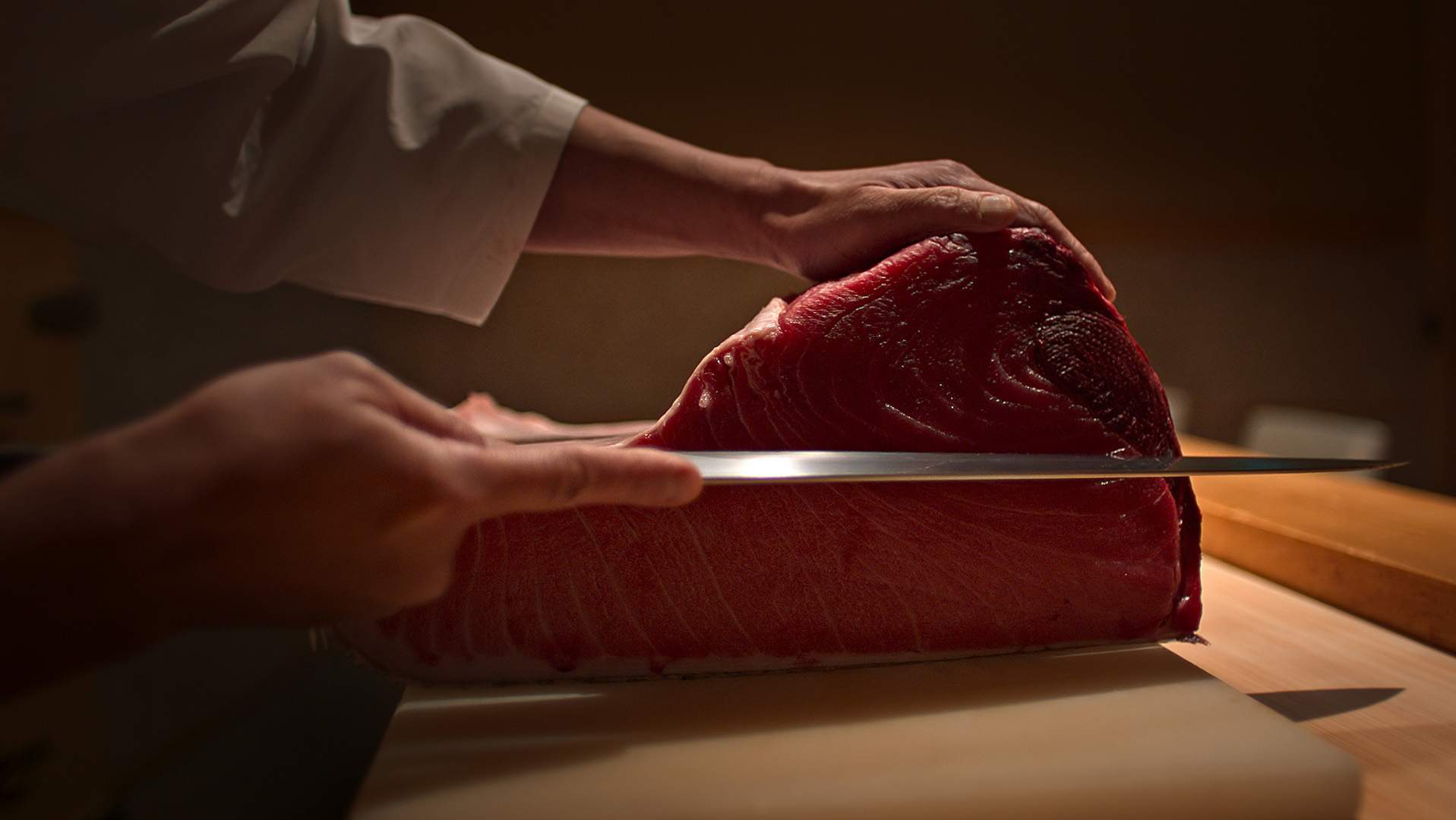
Ben: "It'll certainly start a conversation. It's interesting you ask about that. I mean, 20–30 years ago, somebody also asked that question of — and we're using the old vernacular here, it was prime-time television — but would audiences sit and watch the migration of the dolphin or the mating of the polar bear on prime-time television? Because there had been nothing like that before. And it showed that audiences are looking for things that inspire them and give them hope and make them think, and start conversations.
We're certainly not comparing ourselves to the Planet Earths, but we certainly took inspiration from those. Again, it was that thought of 'could we create this catalyst or this movement around food, and just give people the tools and the information to maybe have them think a little more about where their food comes from, and the impact that it has on culture and community and the planet', etcetera."

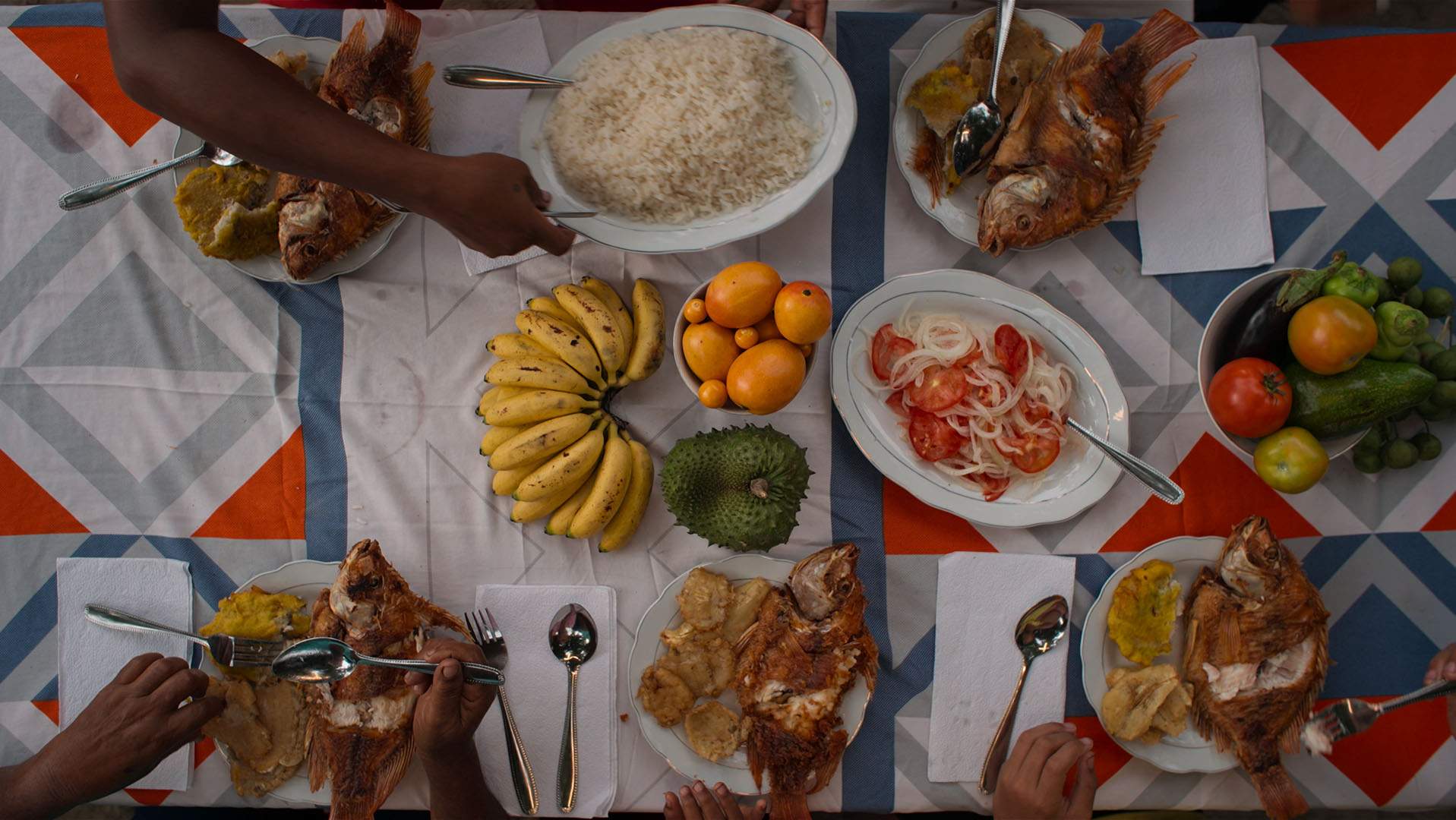
On Balancing Each Ingredient's History, Impact, Influence, Relationship to the Climate and More
René: "It's super hard. That was actually a challenge from the beginning to set the focus right, and to tell eight different stories that somehow still have the ethos and our beliefs in it that food is amazing and everything and the most important thing. But at the same time, to say it with different tonalities and different energies — it was really, really hard.
And then also not to step into the realm of over-explaining — let the people that are actually being filmed explain, let the visuals talk, not step into the camera saying 'hey, we're going to show you this' and have 15 talking heads explaining everything — but, in that sense, being a little more adventurous.
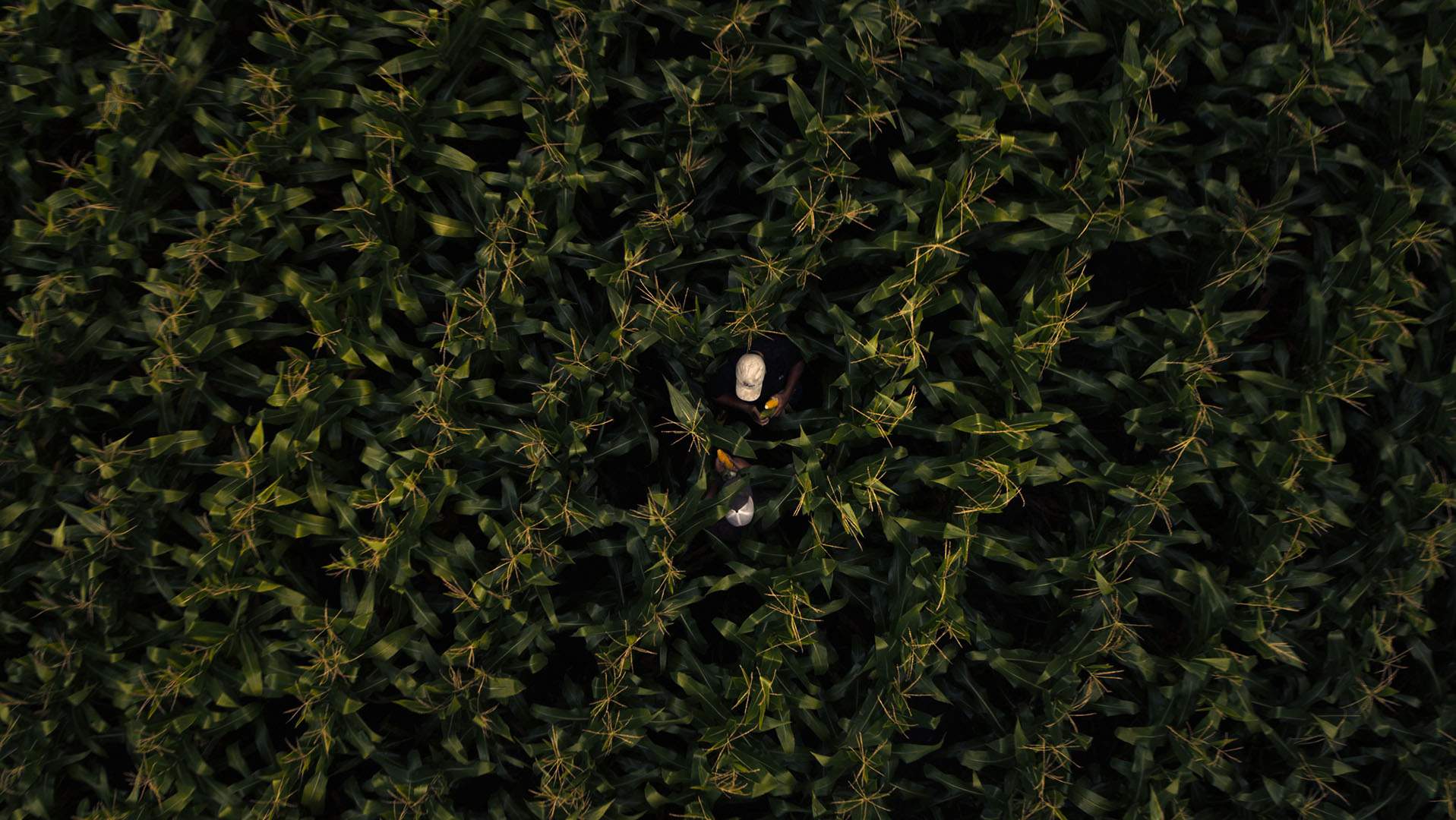
It is always a challenge to do that when you talk about food, the environment, where things come from, where they belong. It's a delicate balance always, without a shadow of doubt. And we threaded very carefully and hopefully we didn't do anything wrong, but I feel like we've really taken great care and attention to actually thread it carefully, and showcase our ideas and the places on earth with a lot of respect and care.
Then ultimately, of course, we want to do that without it all telling the viewer what to do or how to do it. That it's an inspiration for people, that we respect you no matter what you choose to do. We all want the same thing: happiness and a good life. We have very different ways, each of us individually, to actually get there, but we believe in a lot of things when it comes to food — and we want to inspire you to try to see some of that, and see if you can grab some of it and implement it in your daily life.

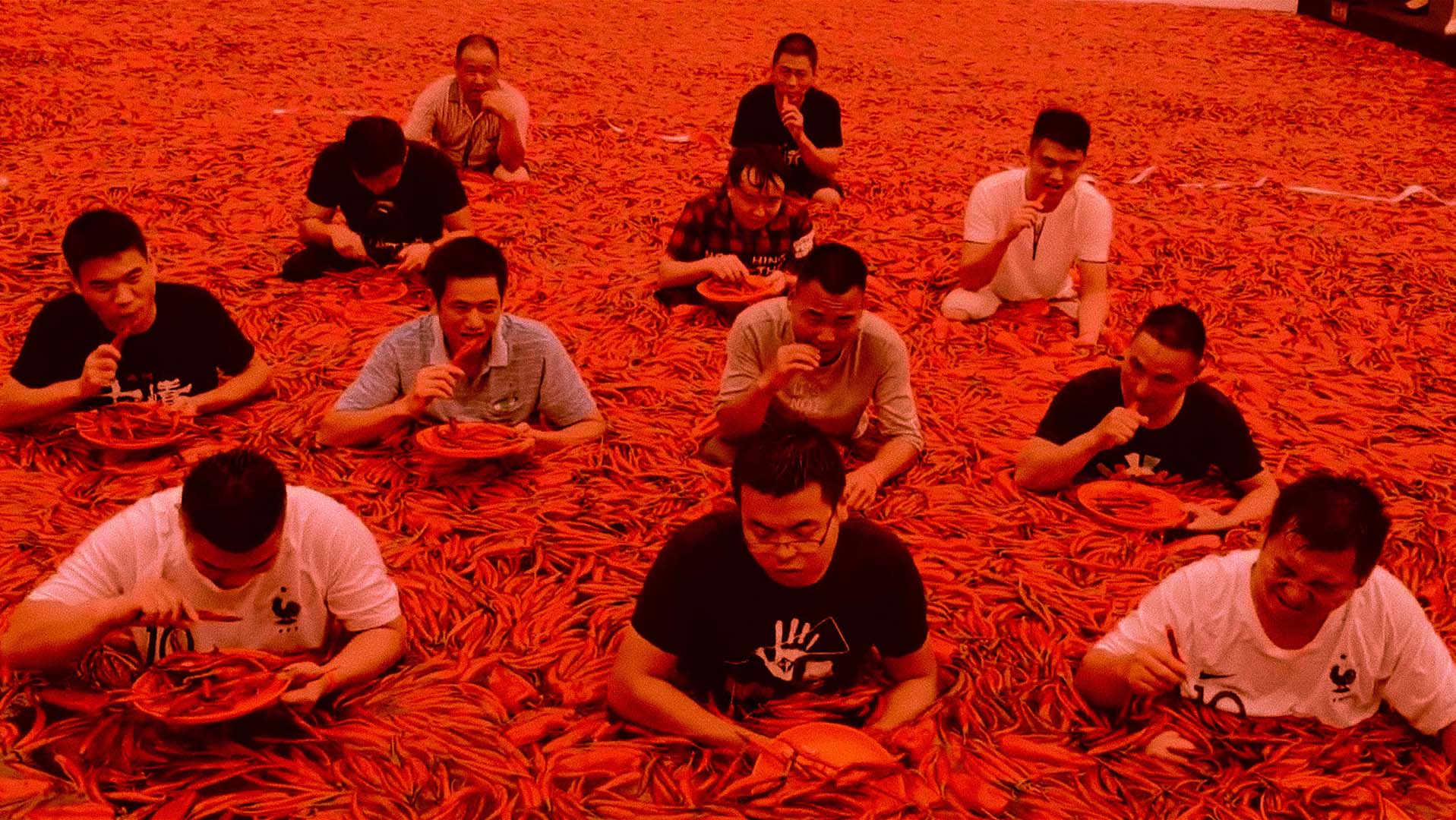
On Choosing the First Season's Eight Ingredients
René: "It was a giant process of choosing these eight ingredients. We probably boiled it down from 120 or something like that, and I think we have at least season two also well-researched — of course, we don't know if we're doing season two yet, it depends on if people like season one.
The process was long and it was hard. We had to do a lot of research before we actually chose. And then, of course, it's between me and Matt and all the other stakeholders in the show. Ben was heavily involved in that, but there was also other people here at the restaurant, like Devin, that works on the show as well from Noma.
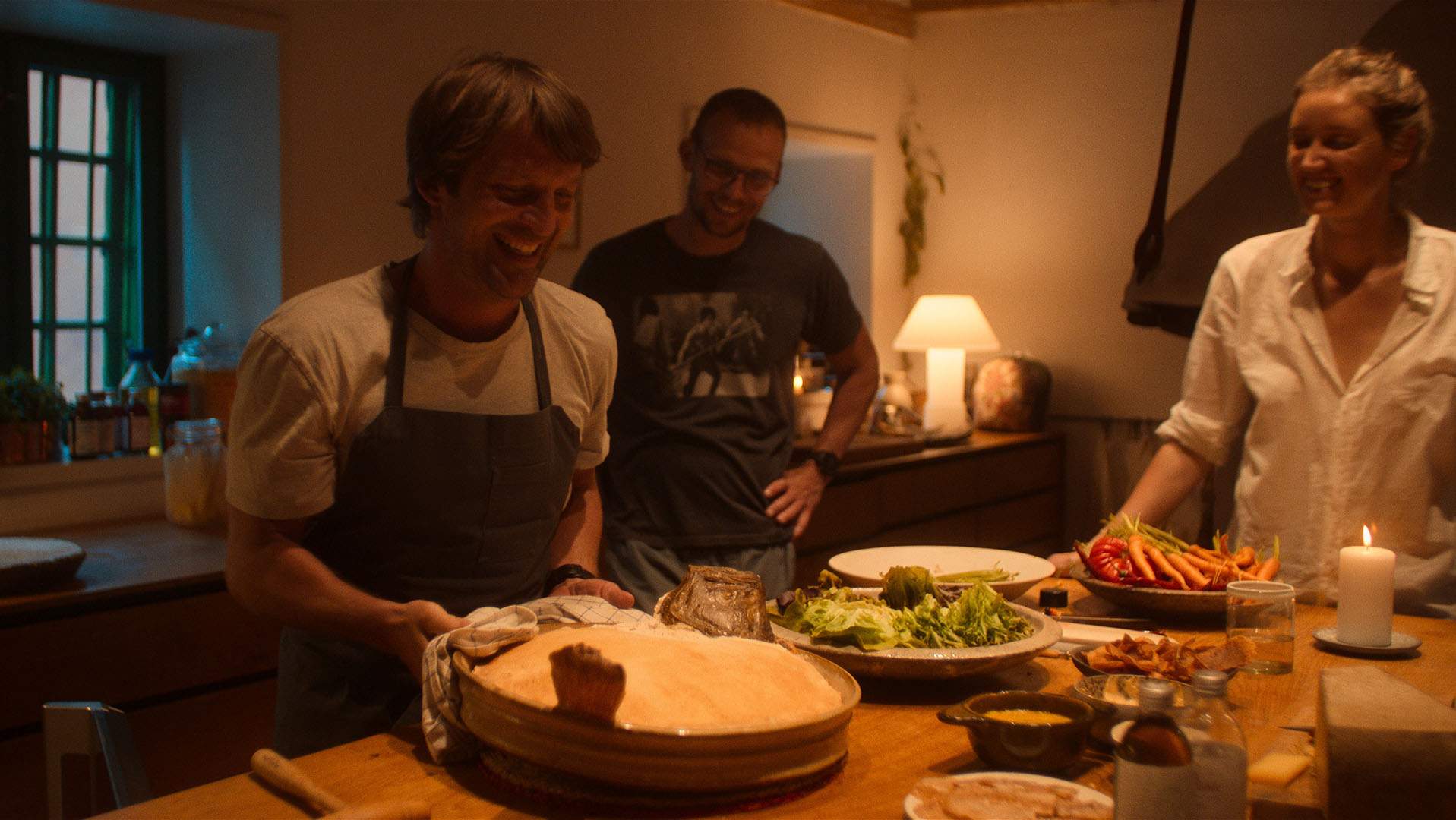
We had Fifth Season, the producers at Apple, everyone had an opinion actually. It was like the UN Peace Corps. And we made it happen and we ultimately ended up choosing eight ingredients that — we could have chosen eight world-altering staples, put wheat in there and the potato and so on and so forth, but we felt it would be a little too one note to have too much of that in there. We needed something that was also just about love, like the chilli story is for instance.
So it was a long process. It takes a lot of research. And then once you have that, you also have a framework for each of the ingredients to actually start from, that you can explain to the director and to everyone that's involved, and then they go do their thing."

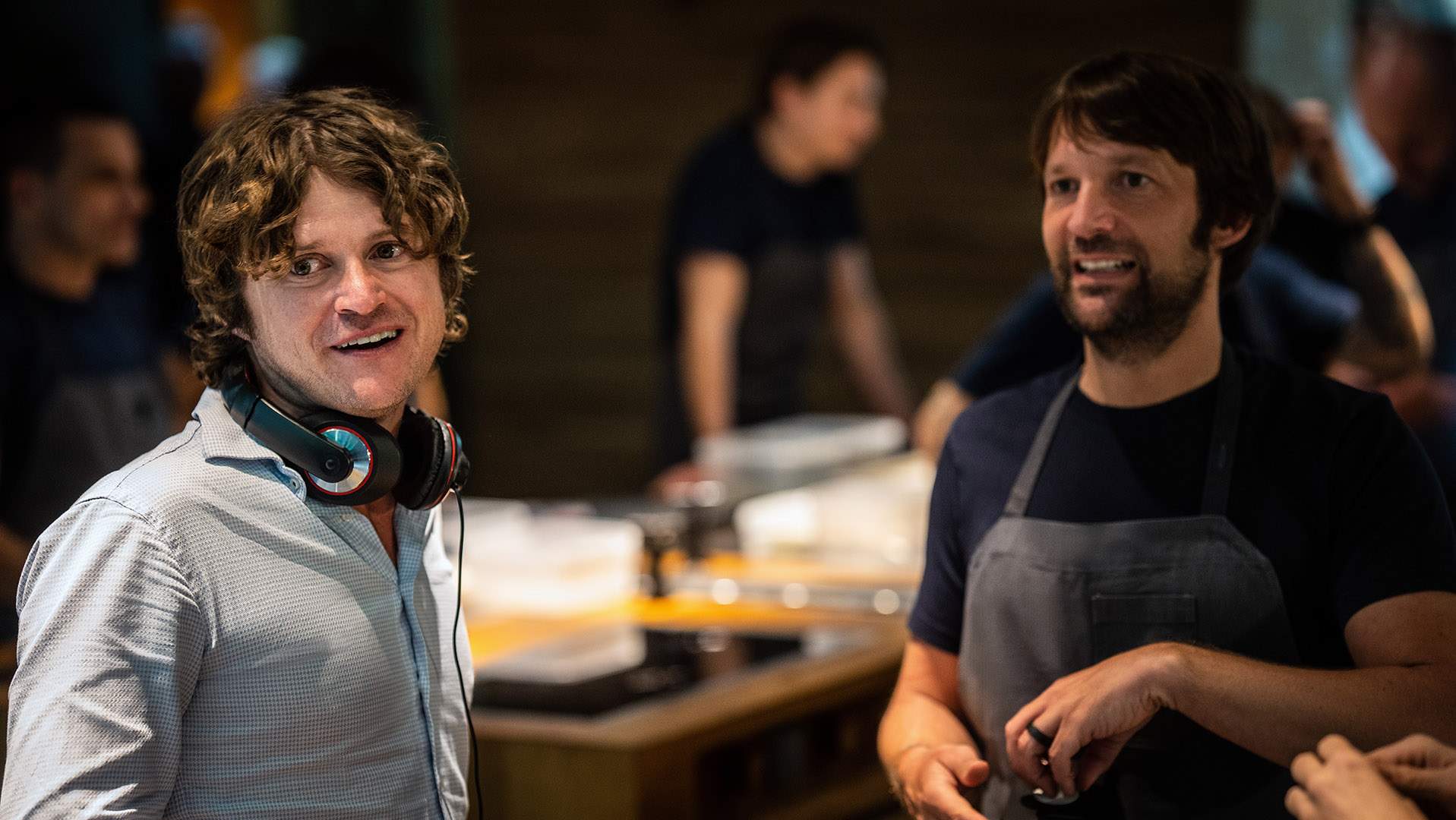
On Omnivore Arriving Just as Redzepi Is Preparing to Say Goodbye to Noma 2.0
René: Actually, Omnivore has helped crystallise so many of the thoughts for the new Noma 3.0. When we go into that, we have a desire that we'd spend our team, our network, our 21 years of expertise, all the labs we have, to actually broaden our approach and work with new collaborators, start new projects that impact food in a bigger way than just cooking every night for 50 people. And in that sense, figuring out how to focus, how to bring the scope, how to have a larger scope, Omnivore helped crystallise a lot of the projects that we're going to initiate in Noma 3.0.
I feel like I should also say that in Noma 3.0, we will still pop up as a restaurant now and then. When the body of work is ready and we need someone to test it on, then we'll come back and work so hard every minute to be the best of the best of the best.
But Omnivore has helped crystalise some of the projects, which actually has been an amazing thing for that reason. And surprising, I would also say, that an added bonus was all that we've learned, all the meaning that we saw and all the interesting people you get to encounter, that they help guide you towards your next path. It's fantastic."

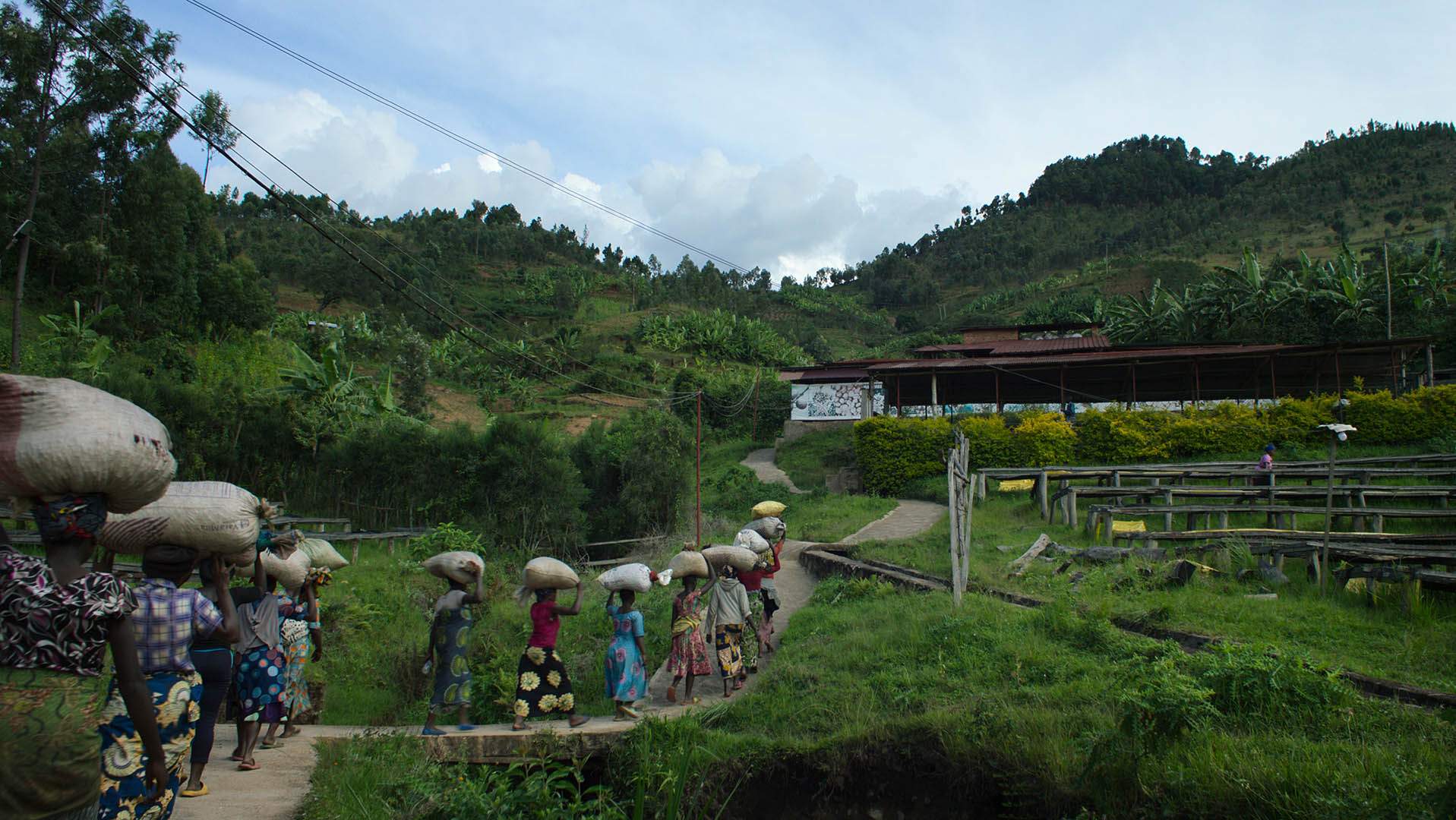
On Redzepi and Liebmann's All-Time Favourite Ingredients, If They Could Only Choose One
René: "Ben Liebmann, it's easy for me. You will let me know what you think, Ben."
Ben: "Well, given that it's 7am here and I'm already on my second cup of coffee, it's probably coffee for me."
René: "I was sure is was going to be coffee for you. For me, it's without a doubt chocolate. I cannot live without chocolate. That's for real.
There's a little chocolate store in Mexico City called La Rifa. It's the best chocolate for me that exists, and I eat a block of that every day. I just can't be without chocolate."

Omnivore streams via Apple TV+ from Friday, July 19, 2024.
